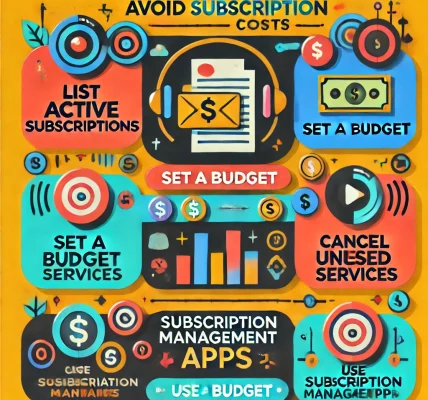When discussing financial well-being, we often focus on numbers—budgets, savings, and investments—but one critical aspect that is frequently overlooked is mental health. Mental well-being and effective budgeting are deeply interconnected. Managing your finances effectively can reduce stress, while poor financial habits can lead to mental health struggles.
In this blog, we’ll explore how mental health impacts budgeting and vice versa, and provide actionable tips for creating a balanced approach to financial and mental well-being.
The Link Between Mental Health and Finances
- Financial Stress Affects Mental Health
Money is one of the leading causes of stress. Whether it’s struggling to make ends meet, managing debt, or feeling financially insecure, these issues can trigger anxiety and depression. Chronic financial stress can also lead to unhealthy coping mechanisms like impulsive spending or ignoring bills. - Mental Health Influences Financial Decisions
On the other side, mental health challenges can impact financial habits. Conditions like anxiety or depression might make it difficult to manage day-to-day tasks, including budgeting or paying bills on time. Impulse buying or avoidance behaviors can worsen financial issues, creating a vicious cycle. - The Cycle of Financial Anxiety
Poor financial decisions can lead to stress, which further impacts mental health, creating a cycle that’s difficult to break. For example, missing a bill payment might result in late fees and increased stress, which then makes it harder to focus on creating a solid budget.
How Budgeting Can Improve Mental Health
- Provides a Sense of Control
Creating and sticking to a budget gives you a clear picture of your finances, which can reduce uncertainty and anxiety. Knowing where your money is going can help you feel in control, even during challenging financial times. - Reduces Stress
Having a financial plan for emergencies, savings, and expenses ensures you’re prepared for unexpected events. This preparedness can ease financial stress and improve mental clarity. - Builds Confidence
Successfully managing your finances boosts self-esteem and confidence, creating a positive feedback loop for both mental health and financial health.
Budgeting Tips for Better Mental and Financial Health
- Start Simple
If financial planning feels overwhelming, begin with a basic budget. List your income, fixed expenses, and flexible spending. Keep it simple and manageable to avoid feeling stressed. - Set Realistic Goals
Unrealistic financial goals can lead to frustration and burnout. Instead, set SMART goals (Specific, Measurable, Achievable, Relevant, and Time-bound) that align with your current mental and financial state. - Use Technology to Simplify the Process
Apps like Mint, YNAB (You Need A Budget), and PocketGuard can automate tracking, categorize expenses, and help set goals, reducing the mental effort involved in budgeting. - Prioritize Mental Health in Your Budget
Allocate funds for self-care, therapy, or wellness activities. These investments in your mental health can have a positive ripple effect on your ability to manage finances effectively. - Build an Emergency Fund
Financial security can ease anxiety about unexpected expenses. Start by saving small amounts regularly and gradually build a fund for emergencies. - Break Tasks Into Smaller Steps
If you feel overwhelmed, break financial tasks into smaller, manageable actions. For example, instead of tackling all bills at once, focus on one category per day. - Seek Support
Talking to a financial advisor or therapist can help you manage both financial and emotional challenges. Support groups or online communities can also provide guidance and encouragement.
Practical Budgeting Strategies for Mental Well-Being
- Automate Payments and Savings: Set up automatic transfers to savings accounts or automatic bill payments to avoid the stress of remembering due dates.
- Create Buffer Zones: Build buffer categories in your budget to account for fluctuating expenses or impulsive purchases.
- Practice Mindful Spending: Before making a purchase, ask yourself if it aligns with your financial goals and emotional needs.
- Track Progress, Not Perfection: Celebrate small wins, like saving your first $100 or paying off a small debt. These milestones can motivate you to continue improving.
The Role of Self-Compassion in Budgeting
Many people feel shame or guilt over past financial mistakes, which can take a toll on mental health. Practicing self-compassion and recognizing that setbacks are part of the learning process can help you move forward.
How to practice self-compassion in budgeting:
- Avoid negative self-talk when you overspend or miss a goal.
- Focus on solutions rather than dwelling on mistakes.
- Remind yourself that financial health, like mental health, is a journey that requires time and patience.
Conclusion
Effective budgeting isn’t just about numbers; it’s about fostering a sense of security, control, and well-being. By recognizing the connection between mental health and financial habits, you can take steps to create a budget that supports both your financial and emotional needs.
Start small, stay consistent, and remember that seeking support is a sign of strength, not weakness. With the right approach, you can break the cycle of financial stress and build a healthier, happier life.




